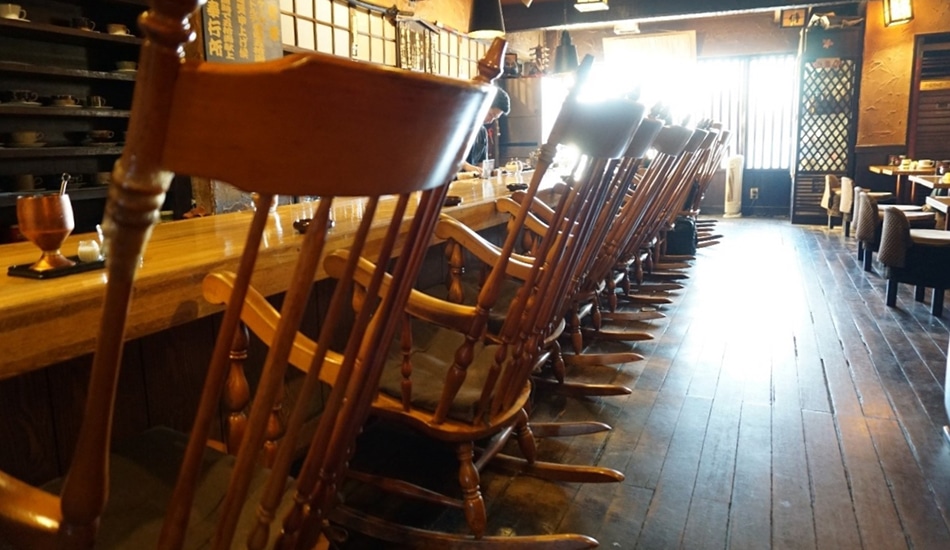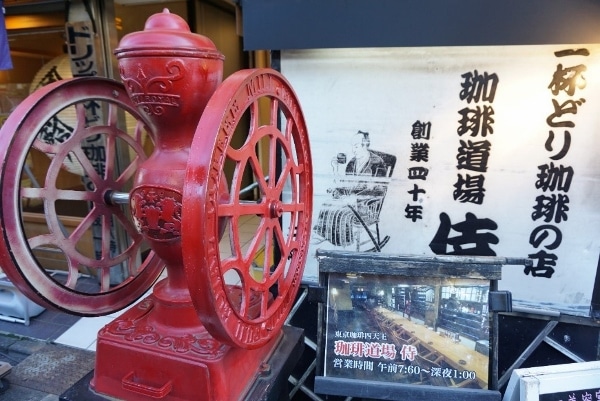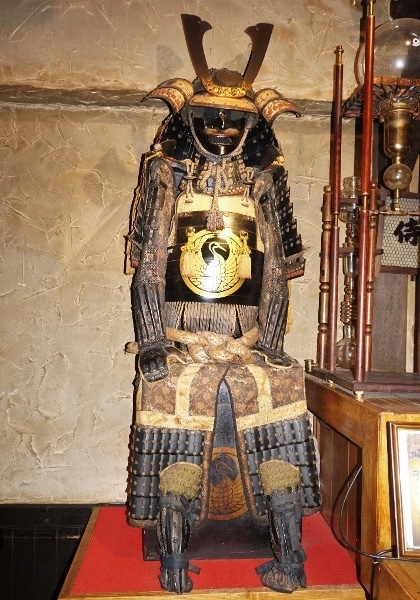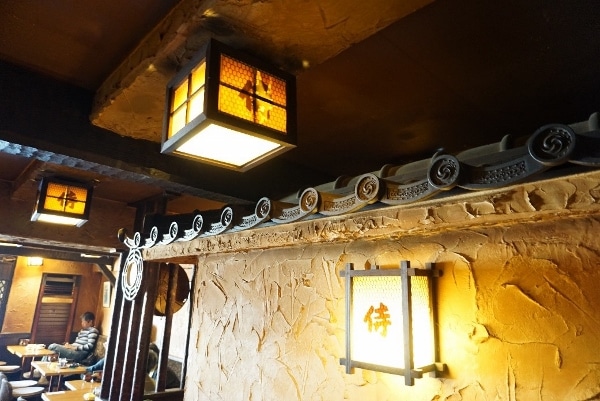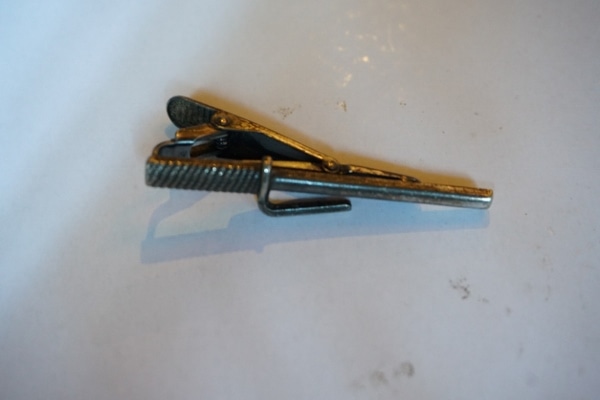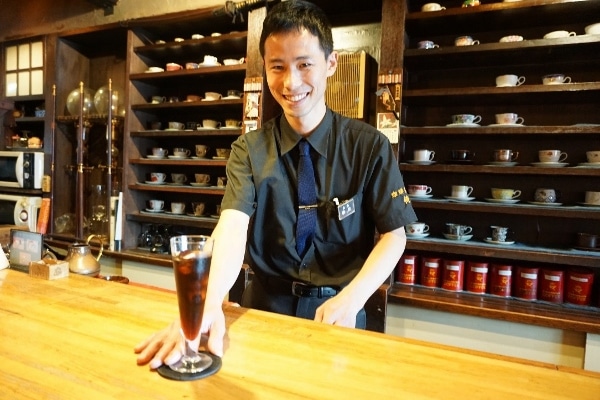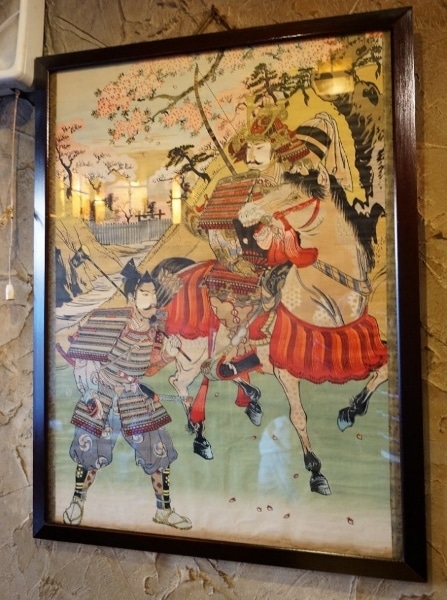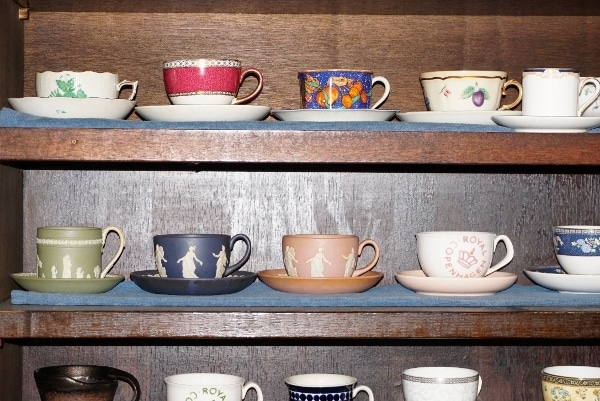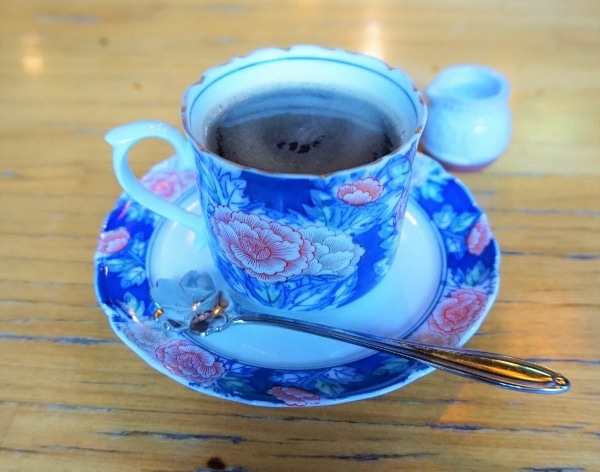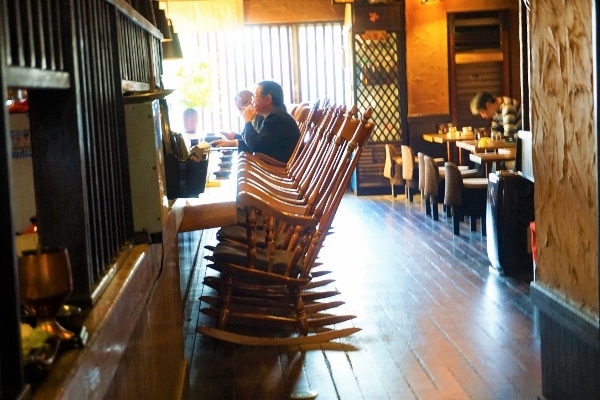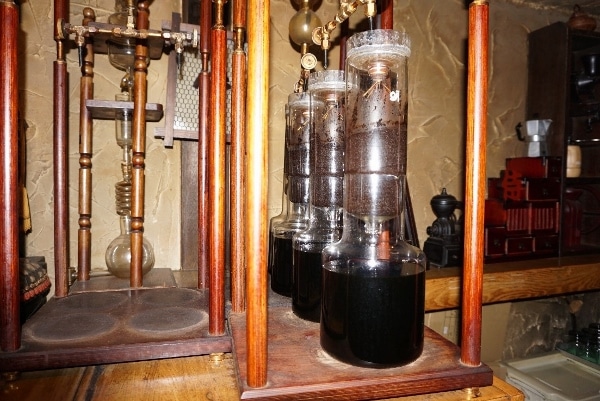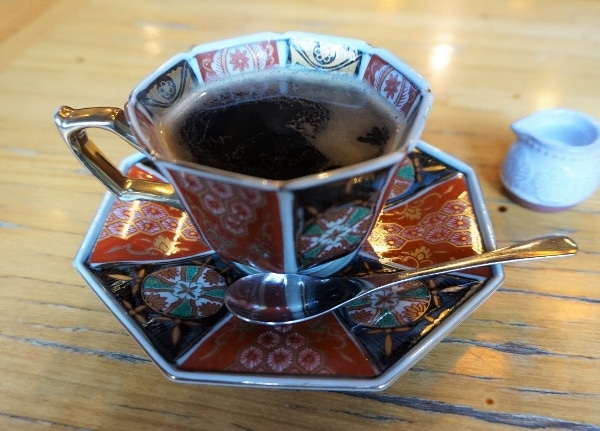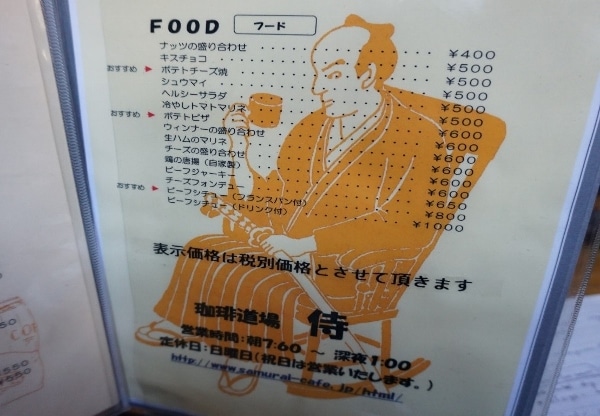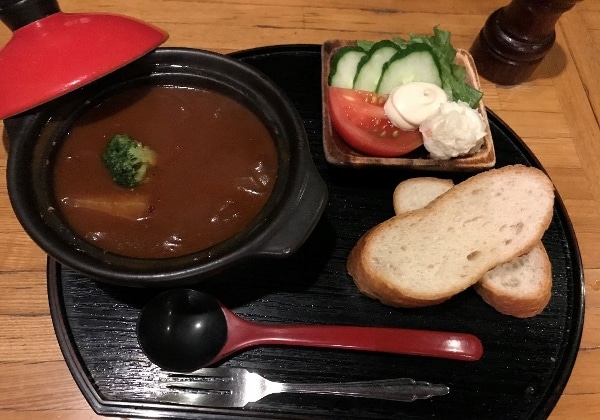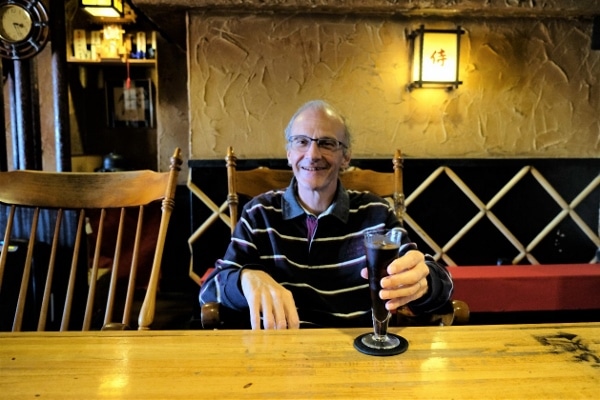Coffee and Rocking Chairs Served Up in the Samurai Spirit
Published: November 20, 2019
In Japanese a “dojo” is a training hall where martial arts are performed, and Mr. Takayuki Kondo has applied the ethos honed at the aikido dojo, run by him and his two brothers, to the world of the coffee shop.
Coffee Dojo Samurai occupies the 2nd floor of a building directly opposite the East Exit of Kameido Station. Outside the entrance to the building you can’t miss its large red coffee grinder and picture of a samurai relaxing in a rocking chair and sipping a cup of coffee.
Entering the coffee shop, a fearsome mask topping an impressive samurai suit of armour stares down at you. This spectacle sets the tone of the establishment.
Echoing the Edo period, other objects and décor add to the coffee shop’s atmosphere.
Dressed in a smart black uniform with a blue tie secured by a “jitte” tie pin (a short metal truncheon – only Mr. Kondo, the “master”, wears a sword tie pin) Mr. Takahito Kasuga, one of the longest-serving staff, took time out to explain the concept behind the coffee shop.
In 1978, after much research into the Tokyo coffee shop culture scene (well before the advent of large foreign coffee chains in Japan), Mr. Kondo opened Coffee Dojo Samurai. He settled on three defining features for his establishment: first was a set of principles by which he and his staff would serve their customers; second was the individuality of the cups in which the coffee would be served; and third was rocking chairs.
Mr. Kasuga explained that all staff, including part timers, go through a strict training course before they are allowed to serve customers. Adopting what he learnt at his aikido dojo Mr. Kondo instils six principles of “budo no kokoro” (the spirit of martial arts) in his staff, as part of the training which covers how staff dress and comport themselves, where and how items are placed on the tables and counter at which customers sit, how customers are addressed and how individual customer’s moods are assessed. Only when they have mastered these skills are staff let loose on the shop’s customers.
To me this is all very deep and very philosophical for a coffee shop.
When he set up shop, Mr. Kondo was having nothing to do with paper or plastic cups. Only the best would do, and Coffee Dojo Samurai’s coffee is served in beautiful porcelain and china cups and saucers bearing famous names such as Narumi and Wedgewood. Each cup is different and Mr. Kasuga reckons that at any one time there are 130 individual cups and saucers on display. Staff choose a cup and saucer which they consider a customer will like; alternatively, a customer can choose one he or she admires.
And the rocking chairs? After much research as to how to differentiate his coffee shop, Mr. Kondo hit upon the idea of providing rocking chairs in which his customers can sit and relax whilst sipping their coffee. I was concerned that it would be easy to spill the coffee whilst rocking backwards and forwards, but it is not so, and makes for a unique selling point. In fact, Mr. Kasuga told me that when a rocking chair becomes free at the long counter there is often a polite rush by those seated at the regular chairs and tables to grab the vacant seat.
Coffee Dojo Samurai’s signature coffee is the “mizu-dashi coffee” (cold-brewed or water-brewed coffee). Using a fascinating antique-looking contraption of glass bubbles, tubes, and receptacles, like something out of a science experiment, water is drip fed through a blend of Honduras and Colombia ground coffee beans over an 8-hour period. The liquid is then placed in a fridge for 24 hours before being served up as iced coffee or heated before being served hot.
The result is a cup of coffee which is strong and smooth but not bitter, and which tastes pleasant drunk hot without milk or sugar.
The prices are reasonable: the original blend hot coffee costs 430 yen, iced mizu-dashi coffee costs 430 yen and hot mizu-dashi 450 yen. Coffee Dojo Samurai also has its own speciality coffee, which is roasted on-site and is changed every 3 to 4 months. The current brew uses Ethiopian beans and costs 550 yen. Mr. Kasuga emphasised that all coffee is prepared and heated only after an order is taken, to ensure that the taste reaching the customer’s palate is fresh.
And to accompany the various coffee drinks available, there is an assorted menu reflecting the shop’s long opening hours. The Morning Set, consisting of two slices of toast and a mini salad, is excellent value at 100 yen. At lunch time there is a selection of toast sets with blend, American or iced mizu-dashi coffee for 780 yen. There is also a selection of light snacks and dishes – my Japanese fellow writer advised me that the 800-yen beef stew is well worth trying.
And if you are considering settling in for an evening at Coffee Dojo Samurai, as part of the alcoholic drinks menu there is an extensive cocktail section, including five original coffee-based cocktails, all priced at 600 yen each.
As I sat in my rocking chair, I thought this is a place to come and relax and contemplate the world, whilst rocking back and forth as you let yourself unwind under the attentive eye of Mr. Kasuga and his colleagues.
Story and photographs by Jeremy Hutchinson

